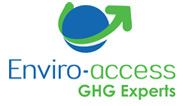By Dominic Beaulieu, Eng., GHG-IQ, GHG-V
Project Director
Recently, the Government of Quebec was establishing a carbon market in Quebec. As part of this market, the large emitters of the province must cover their greenhouse gas (GHG) emissions to comply with the regulations. Quebec’s large emitters who are subject to the Regulation respecting a cap-and-trade system for greenhouse gas emission allowances (CTSGHG) can cover their GHG emissions in particular with offset credits created by emissions reduction projects. Several conditions must be met for a project to be eligible for the issuance of offset credits within the framework of the CTSGHG. In particular, the offset credit project must be submitted with a validation report conducted by an accredited organization.
Basically, validation is a process for determining whether a project meets the requirements of the program for which it subscribes and if it is eligible for this program. The validation of a project is required as part of a GHG program or a regulated market such as the CTSGHG and that is part of current good practices. However, the requirements as presented in the current CTSGHG may complicate and increase the financial burden on offset credit project proponents, particularly for existing and projects already implemented.
Indeed, for organizations being accredited for carbon audits, a choice must be made between providing validation or verification services. The CTSGHG also requires that the verifier has not validated the project plan for the project for which the project report is to be verified. From a good business strategy point of view, a verification mandate probably recurring over several years is much more attractive than a validation mandate that is conducted only once. This is what explains in part the low number of accredited validation organizations (currently, Enviro- access is the only organization in Canada accredited for validation and really active in Quebec). In the case of existing projects, it becomes even more difficult to find an accredited validator, because if the organization is also accredited for verification (which is the case most of the time), it may refuse to bid for validation in order to obtain the verification mandate.
In conclusion, the offset credit project proponents face challenges and choices related to the validation and verification of their offset project. These proponents however will have to play their cards well when it comes time to choose an organization for validation or verification. Remember that validation takes place only once, whereas verification is annual. Therefore, even if the chosen validator comes from outside Quebec, he would have only one specific intervention to carry out while choosing a local organization for verification has the advantage of proximity and possibly lower cost for several years.
